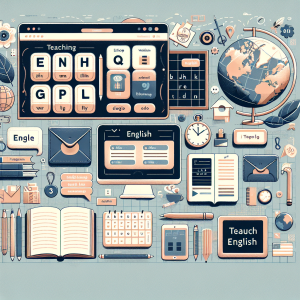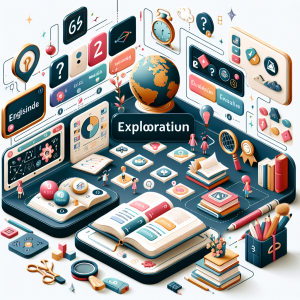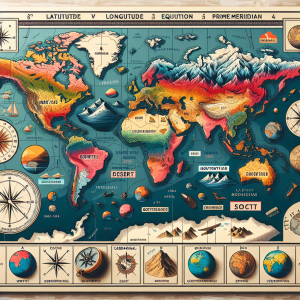English
Learning English can make your everyday life easier and more exciting! Imagine chatting with friends from different countries or understanding your favorite TV shows without subtitles. That’s the power of English!
In stores, knowing English helps you read labels and understand product information. When traveling, it lets you ask for directions and order food confidently. Plus, many websites and apps are in English, so you can browse the internet and use cool apps without any trouble.
English isn’t just about words; it’s about opening doors to new opportunities. It can help you find better jobs, make new friends, and learn about different cultures. So, whether you’re at home, at work, or exploring the world, knowing English can make every day a little bit easier and a whole lot more fun!
Games
Educational games are vital for English language learners as they blend entertainment with effective learning, fostering engagement and motivation. These games provide contextual learning, placing language in real-life scenarios to enhance practical skills. The repetitive nature reinforces vocabulary, grammar, and pronunciation. Tailored to different proficiency levels, games allow individualized learning, promoting self-paced progress. Success in games boosts confidence and sustains motivation, creating a positive learning environment. Additionally, games expose learners to cultural aspects of English-speaking communities, enriching their language experience. Immediate feedback in games accelerates the correction of mistakes, contributing to efficient and enjoyable language acquisition.
Maths
Mathematics is a cornerstone of modern society, playing a crucial role in countless aspects of our lives. It equips individuals with problem-solving abilities, logical reasoning skills, and a deeper understanding of the world around them. From calculating finances and managing budgets to analyzing data and making informed decisions, mathematical literacy is essential in navigating daily challenges and opportunities. Moreover, mathematics serves as the foundation for various fields, including science, technology, engineering, and economics, driving innovation and progress. Whether in academic pursuits, professional endeavors, or personal development, learning mathematics empowers individuals to think critically, approach problems methodically, and communicate complex ideas effectively. In an increasingly interconnected and data-driven world, proficiency in mathematics not only opens doors to diverse career paths but also fosters a deeper appreciation for the beauty and power of logical thinking and quantitative reasoning.
Science
Science plays a pivotal role in a child’s holistic development by nurturing their innate curiosity and igniting a passion for exploration. Through hands-on experiments, observations, and inquiries, children not only learn about the natural world but also develop critical thinking skills essential for navigating an ever-changing society. Science education encourages them to ask questions, seek answers, and think analytically, fostering a growth mindset and resilience in the face of challenges. Moreover, engaging in scientific activities promotes creativity, problem-solving abilities, and effective communication skills. By understanding scientific principles, children gain a deeper appreciation for the interconnectedness of the world around them, fostering empathy and environmental stewardship. Ultimately, a strong foundation in science empowers children to become informed, responsible citizens capable of making evidence-based decisions and contributing positively to society.
Geography
Geography is a vital subject for students because it offers a unique lens through which to understand the world. It’s like having a treasure map to explore our planet! By studying geography, students learn about different countries, cultures, and landscapes. They gain skills in map reading, which is like learning to navigate the world’s highways and byways. Geography also teaches important concepts like climate patterns, natural resources, and environmental challenges, helping students become more informed about global issues. Understanding geography can even inspire a sense of wonder and adventure as students discover the diverse wonders of our planet, from towering mountains to bustling cities. Moreover, it fosters a sense of connection to the world and promotes cultural appreciation and environmental stewardship. Ultimately, geography empowers students to become well-rounded global citizens who are knowledgeable about the world and equipped to make positive contributions to society.





